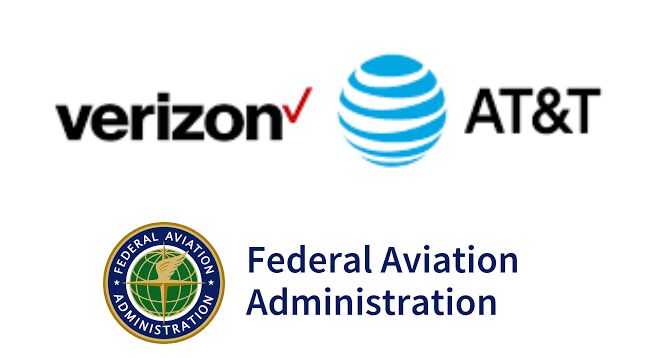Even as the Indian telecom regulator TRAI is discussing issues involving 5G services and the broadcasting community batting against reallocation of part of C and extended C-band spectrum to telcos, American aviation administrator FAA has asked at least two telcos to delay 5G service rollout over aviation safety concerns.
US Transportation Secretary Pete Buttigieg and the head of the Federal Aviation Administration (FAA) on Friday asked AT&T and Verizon Communications to delay the planned January 5 introduction of new 5G wireless service over aviation safety concerns.
In a letter on Friday, seen by Reuters, Buttigieg and FAA Administrator Steve Dickson asked AT&T Chief Executive John Stankey and Verizon Chief Executive Hans Vestberg for a delay of no more than two weeks as part of a “proposal as a near-term solution for advancing the co-existence of 5G deployment in the C-Band and safe flight operations”, Reuters reported from Washington.
The aviation industry and FAA have raised concerns about potential interference of 5G with sensitive aircraft electronics like radio altimeters that could disrupt flights.
“We ask that your companies continue to pause introducing commercial C-Band service for an additional short period of no more than two weeks beyond the currently scheduled deployment date of January 5,” the letter says.
Verizon and AT&T both said they received the letter and were reviewing it. Earlier Friday the two companies accused the aerospace industry of seeking to hold C-Band spectrum deployment “hostage until the wireless industry agrees to cover the costs of upgrading any obsolete altimeters”.
Buttigieg and Dickson said under the framework “commercial C-band service would begin as planned in January with certain exceptions around priority airports”.
The FAA and the aviation industry would identify priority airports “where a buffer zone would permit aviation operations to continue safely while the FAA completes its assessments of the interference potential”.
The government would work to identify “mitigations for all priority airports” to enable most “large commercial aircraft to operate safely in all conditions”. That would allow deployment around “priority airports on a rolling basis” — aiming to ensure activation by March 31 barring unforeseen issues.
The carriers, which won the spectrum in an $80 billion government auction, previously agreed to precautionary measures for six months to limit interference.
 NBF issues another advisory to member TV news channels
NBF issues another advisory to member TV news channels  Govt directs OTT platforms to stop airing Pak content
Govt directs OTT platforms to stop airing Pak content  Netflix to have AI-powered iOS search in TV app revamp
Netflix to have AI-powered iOS search in TV app revamp  India sets up panel to review copyrights laws, AI disputes
India sets up panel to review copyrights laws, AI disputes  Can Trump’s foreign movie tariff threat impact Indian films’ biz?
Can Trump’s foreign movie tariff threat impact Indian films’ biz?  ZEEL appoints Rohit Suri as Chief Human Resource Officer
ZEEL appoints Rohit Suri as Chief Human Resource Officer  Ved Prakash Sharma’s bestselling novels to get film adaptations
Ved Prakash Sharma’s bestselling novels to get film adaptations  Ultra Play celebrates iconic Bollywood mothers with content lineup
Ultra Play celebrates iconic Bollywood mothers with content lineup  Sony PAL records 15.6% weekly reach in Week 17: BARC Report
Sony PAL records 15.6% weekly reach in Week 17: BARC Report  Dolby announces Mother’s Day special content lineup
Dolby announces Mother’s Day special content lineup 








